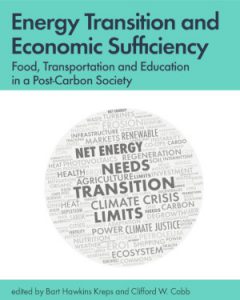Since Spring 2019, I’ve co-taught the course, “Power Systems Journey: Making the Invisible Visible and Actionable” with Paul Imbertson, at the University of Minnesota. The course is based on the Earth Systems Journey model. As with all Earth Systems Journeys, the application is adapted for people (mostly undergrads), place (the grid as it intersects a light switch in the Bell Museum), and program (project-based grand challenge curriculum). The students in the course explore the electric grid and its role in the energy transition underway in the context of climate change and create two sets of public communication story maps for Minnesota Power Histories, and for Minnesota Power Futures. These can be viewed on the website, www.powersystemsjourney.net.
We were pleased to be invited to submit a journal article about the course for inclusion into a themed issue of American Journal of Economics and Sociology, and then that themed journal was published as a book through the Post Carbon Institute. It has been amazing how much the energy sector is evolving just since we started teaching the course in 2019. We hope the principles of the course serve our students well as they navigate even more changes in their lifetimes. That’s why we start with the history of electrification. The lens of systems thinking, and narratives about technology embedded in culture and values, are useful across periods of technological changes.
 You can find the book with the chapter about our course on the Post Carbon Institute’s website here. The book has many other interesting chapters as well, exploring the energy transition as it intersects many fields.
You can find the book with the chapter about our course on the Post Carbon Institute’s website here. The book has many other interesting chapters as well, exploring the energy transition as it intersects many fields.
Notes:
Brigham, J. K., & Imbertson, P. (2020). Energy-Transition Education in a Power Systems Journey: Making the Invisible Visible and Actionable. American Journal of Economics and Sociology, 79(3), 981–1022. https://doi.org/10.1111/ajes.12347
Brigham, J. K., & Imbertson, P. (2021). Energy transition education in a power systems journey: Making the invisible, visible. Energy transition and economic sufficiency: Food, transportation and education in a post-carbon society (pp. 227–250). Post Carbon Institute.
(This news post is back-dated to match book release date.)


